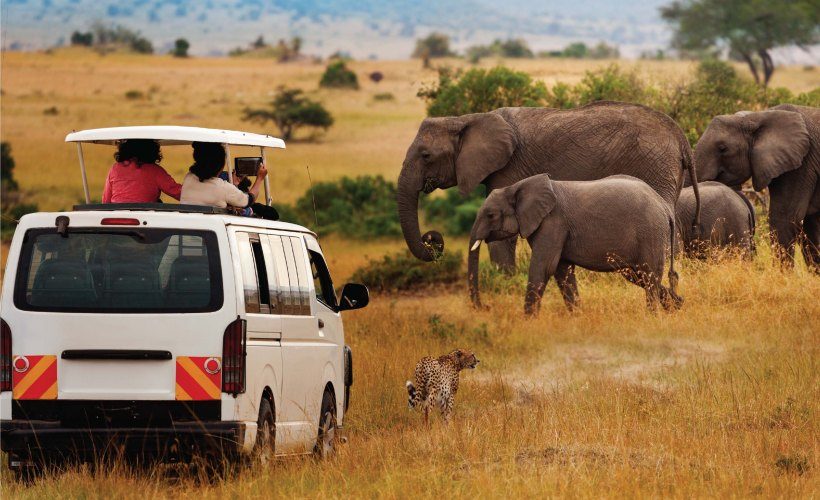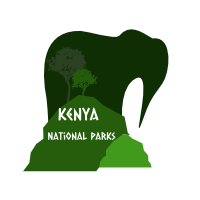
Are you planning to travel to magical Kenya for a safari? If yes, then there are some things you have to know about this African destination so as to have a memorable safari experience.
Firstly, the name/country Kenya is synonymous with safaris thus if you are someone longing to have the most unforgettable and World class safari experiences, this East African country should not miss on your bucket list. It’s not about the few wildlife you will encounter in Uganda but large populations of Rhinoceros, Serval cats, African elephants, hyenas, lions, warthogs, African buffaloes, leopards, jackals, zebras, Wildebeests, cheetahs, antelopes (elands, waterbucks, impalas, lesser kudus, bushbucks, Suni, duikers and Oribis), Hippos and giraffes among others thus making it one of the World’s most fascinating countries.
The country also boasts of diverse and magnificent landscapes and very hospital people that make it your perfect place to relish the beauty of nature and also unwind during your vacation. Breathtaking, spectacular, unforgettable, jaw-dropping or mind-blowing, no words are good enough to describe the feeling you get when you step into this country’s wilderness. Everything seems like a different World, actually it’s like Paradise on Earth. Kenya is a known for numerous National Parks that include Hell’s Gate, Tsavo, Nairobi, Mount Kenya, Mount Elgon, Lake Nakuru, Amboseli, Aberdare, Mount Longonot, Sibiloi, Ol Donyo Sabuk, Kora and Chyulu Hills National Parks among others in addition to several National Reserves such as the Masai Mara, Simba Hills, Samburu and Buffalo Springs National Reserves. All these destinations will offer what you have never experienced before.
However before you even consider making your booking for the safari to this magnificent African country, there are some things you have to know thus provided are the important tips you ought to understand prior to traveling;
Understanding the climate/weather of Kenya
Understanding the climate and weather of Kenya is ideal for deciding when to travel to the destination. The Climate is mainly influenced by the altitude and onshore monsoon winds, which determine the onset of the country’s two rainy seasons with the hot north-east monsoon or Kaskazi blowing dry air from the Persian Gulf from November to March or April and the warm moist kusi monsoon that blow in from the south-east from April or May to October. It is therefore the slightly cooler kusi that usually brings the heaviest rain-also the long rains from late April to early June. However, the relatively cool season from late June to October receives less rain but another rainy season-short rains are for a few weeks of November and December, which is then followed by a dry season from mid December to March. Not to forget, the climate also influences some animal activities such as the annual wildebeest migration (where millions of wildebeests, zebras and gazelle migrate across the unfenced boundaries of Masai Mara National Reserve and Serengeti National Park) which is normally linked to the annual rainfall patterns and the sprouting of new grass. These migrating herds enter magical Kenya from June to October or November.
All in all, Kenya lies within the equator and experience tropical climate (both dry and wet season) with temperatures sometimes dropping up to 6 degrees Celsius for every 1000 meters you ascend but the country’s general daytime temperature is between 20 and 28 degrees Celsius yet slightly warmer on the coast. You will notice that the coast is hot and humid all year round and the heat is tempered by the monsoon winds. Nonetheless, this is an all year destination thus you can visit at anytime you wish.
Best time to visit Kenya for a safari
Best time to visit Kenya depends on whom you ask or the tourist activity you intend to participate in during the Kenyan safari. However, this destination can be visited all year round (from January to January) much as some months will offer better wildlife experiences than others.
Travel Insurance
Just like traveling to any foreign country, tourists planning to undertake Kenyan safaris are advised to first purchase travel insurance to cater for unexpected calamities such as accidents, theft of luggage and injuries among others.
Personal safety and Security
While the people of Kenya are very welcoming and friendly, the level of poverty pushes people to the extreme hence committing crimes especially theft with tourists being the main victims. There are so many things you can actually do within Kenya to ensure you stay safe and secure during your safari. These tips involve avoiding carrying flashy cameras or jewelry and avoid carrying too much cash with you because it draws attention to yourself. Also, make a copy of most of your documents especially passports. Additionally, there are several checkpoints in the country so don’t be surprised when you meet them during the safari.
Health advice for travelers to Kenya
There are several mandatory vaccinations required when traveling to magical Kenya and these include Yellow Fever, Hepatitis A and Hepatitis B among others. Much as it is not mandatory, it is advisable to purchase anti-malarial and anti-diarrheal drugs because there are higher chances of contracting malaria when in this country, especially in lowland areas but tourists visiting highland areas have lower risks of malaria.
Nairobi City is not as bad as people make it sound
People have painted Nairobi as unsafe destinations thus the name “Nairobbery” due to the high cases of theft and robberies but when you visit it, you will totally be surprised that they are all lies. Cities like Las Vegas have been known for crimes but how many people still long to visit the City? Therefore, don’t believe the lies painted about Kenya’s Capital City because it is very safe with exquisite hotels, nice restaurants and many bars to allow you experience the City life.
Money matters
The country’s national currency of Kenyan shillings much as other foreign currencies such as US Dollars are accepted when paying for tourist activities and paying for accommodation within National Parks. However, tourists are always advised to exchange some money into the local currency for paying bills in bars or restaurants, purchases in supermarkets, paying for meals not included in the itinerary and buying souvenirs among others. Due to the numerous fake notes in circulation, US Dollar bills printed before 2003 will not be accepted and must not be torn or worn out. Kenyan shillings are inform of notes (issued in 50, 100, 200, 500 and 1000 denominations), and coins issued in 1, 5, 10, 20, 40 and 50 denominations.
There are several banking institutions and ATMs thr0ughout the country’s key travel destinations (Nairobi inclusive) and credit cards especially American Express, MasterCard and Visa are accepted in these places.
Matters of food and drinks
When it comes to drinks and foods, you have to be extremely careful with what and where you eat. Firstly, always drink bottled or thoroughly boiled water to avoid chances of getting typhoid or cholera. If you wish to take fresh fruit juice, it’s advisable to always buy them from supermarkets or even take organic juice prepared/served within safari Lodges, restaurants and Hotels. Another thing to avoid is eating street foods especially meat due to the cooking styles as well as quality level thus likely to cause stomach upsets.
Passport and Visa Requirements for travelers
Just like any other country, tourists intending to travel to Kenya are required to possess Passports valid for at least 6 months and Visas, which can either be purchased on arrival or from Kenyan Embassies in your respective countries. Alternatively, you can get the East African Tourist Visa at only $100 if you wish to visit Uganda and Rwanda on top of Kenya. However, not everyone is required to have a Kenyan Visa especially Citizens from some countries like Antigua and Barbuda, Bahamas, Barbados, Benin, Burundi, Botswana, Comoros, DRC, Cape Verde, Ethiopia, Dominica, Ghana, Jamaica, Lesotho, Zimbabwe, Malawi, Uganda, Philippines, Tanzania and Zambia among others but if you are a European or America citizen, you must possess a valid visa to visit Kenya.
Respecting cultures of the people
It is always important for tourists to respect the cultures and traditions of the host communities. This involves dressing decently/appropriately, learning some few of the words in the language and participating in the activities in the communities. This way you will have a memorable safari in Kenya.
What to pack during the Kenyan safari
Packing for a Kenyan safari depends on the activity you plan to engage in but due to its tropical climate as well as country requirements, the items that must not miss on your packing list include Travel documents (passports, visas and vaccination certificates), long sleeved shirts, long trousers, pair of shorts, comfortable hiking boots, sandals/flip-flops, gardening gloves, a backpack, snacks, bottled water, gadgets such as a camera and pair of binoculars, brimmed hat, toiletries (Shampoo, toilet paper, lotion, sanitary towels, sanitizers, tooth brush and tooth paste among others), swimsuits, sunscreen, prescription medication, first aid kit, Travel insurance, Guidebooks and Traveler’s cheque/credit card or debit card among others.
Don’t go around asking people about their tribe
Although the people of Kenya may not be very sensitive about the topic, try not to bring the issue of tribe during conversations. Its offensive and weird thus a sensitive thing to avoid during Kenya safaris but the official languages are English and Swahili.
Tipping of service providers
Although it is not mandatory, it is a good practice to discretely tip drivers, waiters/waitresses, receptionists, porters and tour guides for the good service offered during the safari. Therefore, a 10% (of the service charge especially in Hotels and Restaurants) tip is good and can change someone’s life.
Transport means within the country
The main flight hub is Jomo Kenyatta International Airport (about 13 kilometers/8 miles) outside of Nairobi City thus is a gateway to most destinations in the country including Masai Mara National Reserve, Amboseli, Aberdare, Nairobi and Hell’s Gate National Parks among others in addition to the pristine white sandy beaches. Other Airports also exist in the country and they are Moi Mombasa International Airport, Wilson Airport and several airstrips can be used by tourists interested in using Air transport. Road connections between the airports and main destinations are facilitated by matatu, minibuses and 4WD vehicles for remote destinations.
In conclusion, visiting a foreign country is an exciting moment but due to the difference in culture, currencies, climate and others, tourists planning to undertake a safari to magical Kenya ought to have some tips to have memorable safari experiences. These tips include knowing the climate/weather before traveling, issues of money and foreign exchange, foods and drinks, best time to visit, transport means to use, personal safety and security and tipping among others.
